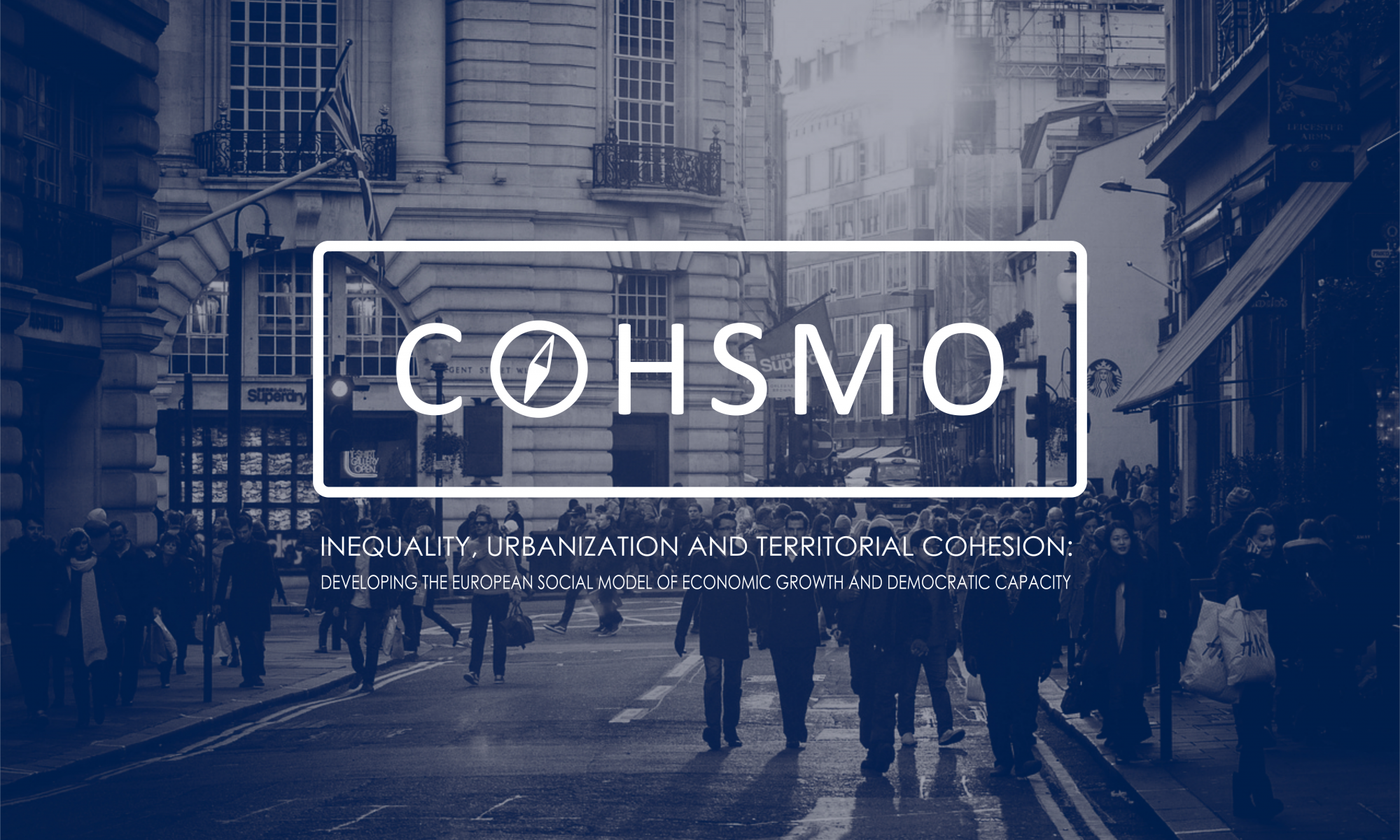READ OUR EUROPEAN POLICY BRIEFS HERE
POLICY BRIEF NO. 8
Research findings from COHSMO countries report several examples of how institutions have developed the potentials of spatial planning for tackling territorial inequalities, with implications for the relationship between socio-spatial configurations and territorial cohesion.
POLICY BRIEF NO. 7
Drawing on previous outputs (assessment of policies and multilevel governance and assessment of service provision), COHSMO has developed a framework for the cross-national evaluation and identification of ‘good practices’ and social Innovation that can provide the basis for policy learning between regions and countries experiencing similar problems of spatial inequality and lacking territorial cohesion.
POLICY BRIEF NO. 6
This briefing paper looks at the conditions that favor or hinder the development of Social Investment strategies in European territories. Local conditions and institutions structure the opportunities of citizens, in terms of employment, social participation and overall well-being.
POLICY BRIEF NO. 5
When teasing out similarities and differences of the COHSMO case locations and investigating strategies at different scales a crosscutting tendency appears: public policies, that are able to tackle territorial inequalities, vary in their effectiveness. Local development is very different in the two cases Lemvig, DK and West Dorset, UK that is compared in this Policy Brief.
POLICY BRIEF NO. 4
The principal idea is to provide a critical overview of current discourses which inform policy, in particular how territorial cohesion is constructed (or not constructed) as a relevant object and if it is at what scale and to locate scope and relevant scale of policies in terms of territorial cohesion. Focus is on analysing policy documents and strategies and on identifying symbolic, innovative spearhead projects and approaches.
POLICY BRIEF NO. 3
The claim guiding this part of the project is that the elements of territorial cohesion could impact both in a positive sense by boosting local innovation and ownership of forms of intervention, and in a more problematic sense by creating local inertia and resistance to local development and sustainable change.
POLICY BRIEF NO. 2
This phase of the COHSMO-project focuses on how location matters in the relation between policies aimed at promoting economic growth and social well-being and the context of local territorial cohesion.
POLICY BRIEF NO. 1
The main aim of the opening part of the COHSMO-project has been to achieve a differentiated understanding of place and how and why localities matter in the relations between territorial cohesion, spatial justice, economic growth and democratic capacity on the basis of an international literature review of existing theoretical and conceptual knowledge.

